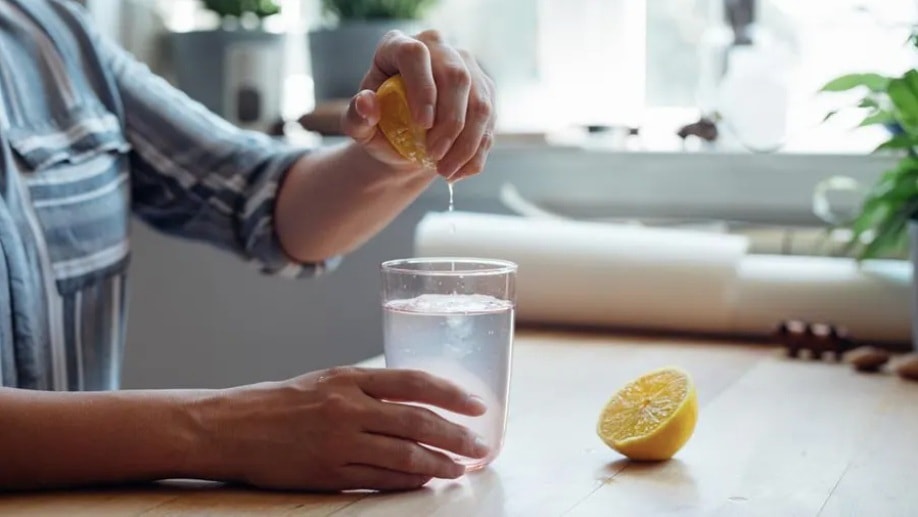The safest way to detoxify the body
Nowadays, you probably have heard a lot about the phrase body detoxification. In fact, to do this you do not need to try anything crazy because the human body can detoxify itself regularly.
Dr. Nayan Patel, an assistant professor at the University of Southern California (USA), said that the human body has a detoxification system at the cellular level. If you treat your body well, it will detoxify naturally without any detoxification methods.
So are there things you can do to optimize your body's natural detoxification abilities? Here's how to detox the right way instead of a strict diet, teas, pills, laxatives...
What is poison?
Detoxification or cleansing are terms used to describe ways to improve your health. So the question is: What are toxins and are they really dangerous?
Toxins are technically defined as substances that have a negative impact on your health. They can be the result of environmental exposure, such as drinking contaminated water or smoking cigarettes. They can also be byproducts of essential biological processes, such as breathing polluted air.

There are natural ways to support your body's detoxification process. Photo illustration: Getty Creative
"Our bodies are equipped to process these toxins through the liver, kidneys, digestive system, respiratory system and skin. Of course, there are exceptions, such as a person who may need chelation therapy to deal with mercury poisoning from eating too much of certain types of seafood," said Professor Michael Fenster, PhD, Kansas Health Sciences Center (USA).
According toForbes, currently, scientists believe that a healthy person does not need a detoxification regimen. However, there are situations that can disrupt the body's natural detoxification system, such as liver and kidney disease.
In this case, they need help to remove toxins from the body, Dr. Fenster said. However, what is needed is not a detox or a cleanse, but treatment under the guidance of a medical professional.
What does detox mean?
Detox generally refers to removing toxins from your body, often for weight loss or other health benefits. Approaches may include fasting, juicing, eating only certain foods, taking supplements or herbs, cleansing the colon with enemas or laxatives, and sitting in a sauna.
Do you need a detox?
The short answer is, it depends on your health. If you are experiencing unpleasant symptoms, it is important to see a doctor. However, if you are not experiencing anything unusual, you really do not need to do anything special to detox. The human body is always trying to find balance and has a multitude of built-in mechanisms to neutralize, process and eliminate toxins.
While there are many natural substances and activities that can assist the body in its detoxification efforts, most can be obtained simply by following a healthy diet/lifestyle. In some individuals, vitamin and mineral supplementation may be recommended to ensure the body has the necessary building blocks to support the natural detoxification process.
But don't mistake the need for vitamin and mineral supplements to mean that all the detox supplements you see on store shelves or advertised on social media are helpful.
Is detox safe?
“Some detox diets may require excessive consumption of juices or teas, which can cause electrolyte disturbances and even kidney damage,” says Dr. Fenster. “Detox regimens that involve the use of laxatives can cause severe diarrhea, dehydration, and other medical complications.”
An overly restrictive diet can also lead to deficiencies in essential nutrients. And for people with conditions like type 2 diabetes, certain detox routines can even worsen their underlying condition.
Safe Ways to Help Your Body Detox Naturally
Consider trying some or all of the following methods to boost your natural detoxification abilities:
Limit alcohol
Alcohol and its byproducts (such as acetaldehyde) are toxic to the body. Therefore, when you drink alcohol, your liver works hard – since the liver is the main organ responsible for processing alcohol – to continue breaking down acetaldehyde until it eventually becomes carbon dioxide and water, which can be excreted from the body.
The problem with regular drinking is that if you constantly keep your liver busy trying to remove alcohol and its byproducts from your system, it will have less ability to remove other toxins. Not to mention that excessive drinking can damage your liver over time, further reducing your body's ability to naturally remove waste.
Focus on nutrition
Dr Fenster said that the amount of ultra-processed food consumed was directly correlated with the risk of diseases such as obesity, type 2 diabetes, cardiovascular disease and, most worryingly, an increased risk of premature death.
Ultra-processed foods contain a variety of preservatives and additives. The more processed foods you consume, such as soft drinks, sausages, packaged cookies, and fast food, the more likely you are to develop a condition that can interfere with your body’s natural detoxification ability.
Dr. Patel also recommends consuming foods low in mercury and always washing fruits and vegetables before consumption. All of these things play a role in limiting the body's exposure to the toxin.
Drink more water
The reason is that water flushes waste out of the body. The human body is about 60% water, and it is the medium in which all of the body's transport systems exist. "Staying hydrated is important so that toxins in your body can be regularly eliminated," says Dr. Patel. "Aim to drink 2.5 to 3.5 liters of water per day."
Increased sweating
There is currently no solid consensus around this fact, but sweating may be helpful for the overall detoxification process. Additionally, light exercise and movement can help promote bowel function, which in turn helps promote the excretion of toxins.
The lymphatic system is also an integral part of the immune system and is key in removing metabolic waste and toxins.
Prioritize sleep
Sleep is incredibly important. The exact amount needed can vary from person to person. However, the general consensus is that getting at least 7 to 9 hours of sleep each night is best for optimal health.
Studies show that during sleep, our brain states undergo physiological changes. “It seems that during this cognitive cycle, brain cells are clearing themselves of toxins,” says Dr. Fenster.
Getting enough sleep is essential for proper detoxification of the brain, with sleep deprivation linked to a variety of neurological conditions from Alzheimer's to Parkinson's.
The body operates on a sleep-wake cycle and different organs perform their functions at regular intervals. For this reason, it is ideal to develop a regular sleep-wake routine.
Reduce stress
It is important to deal with stress, both the kind that comes from within the body (such as anxiety) and the kind that comes from outside (such as working in a stressful environment). When stress becomes chronic, it can cause negative health outcomes and internal detoxification pathways can be affected.
To control your stress levels, try meditating for three to seven minutes twice a day to clear your mind of clutter, says Dr. Patel. Or you can also take a walk in nature or take a long bath.
Minimize exposure to toxins
As mentioned above, minimizing your toxic intake before you need to detox is the best way to go. And one way to do that is to avoid toxins as much as possible.
“Be a smart, informed consumer and avoid products that contain ingredients we know are bad,” says Dr. Patel.
Top culprits include bisphenol-A found in plastics and food packaging, phthalates found in plastics, solvents, personal care products, and parabens found in cosmetics, body care products, and more.





